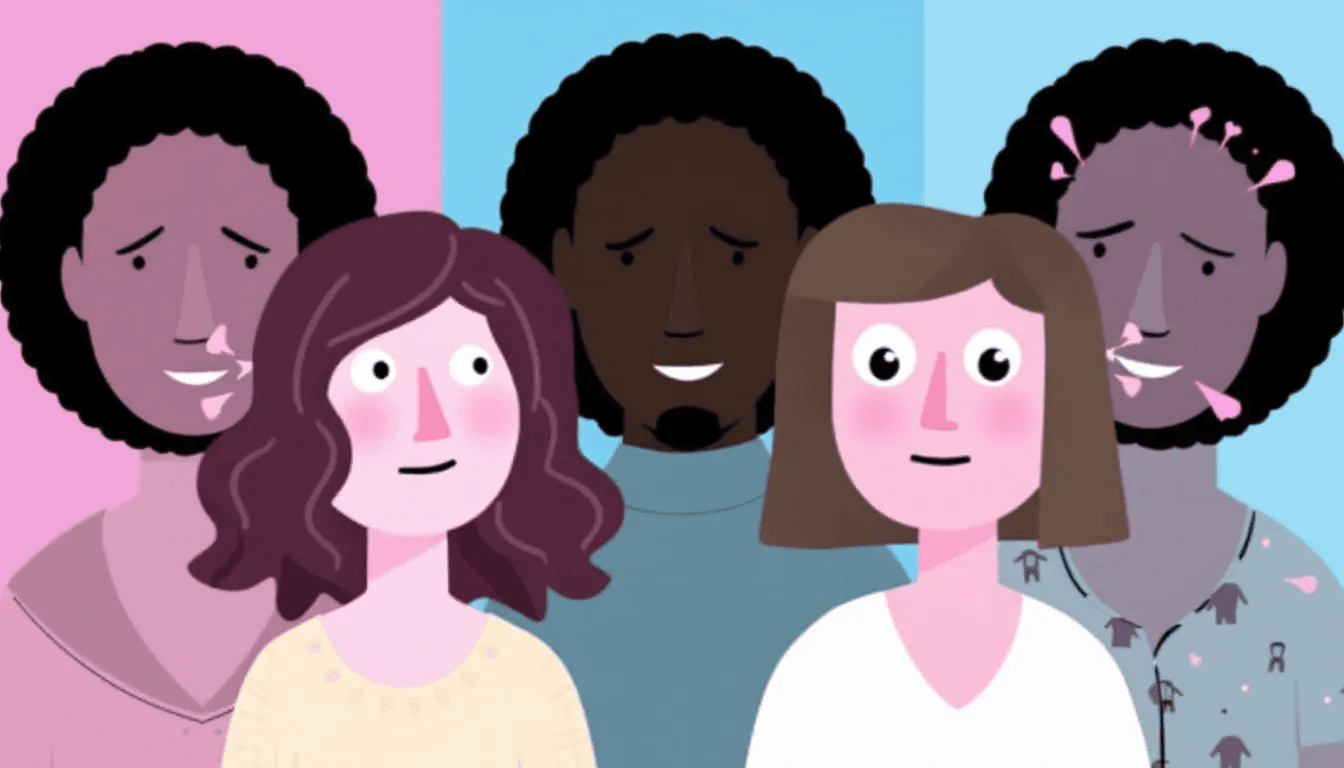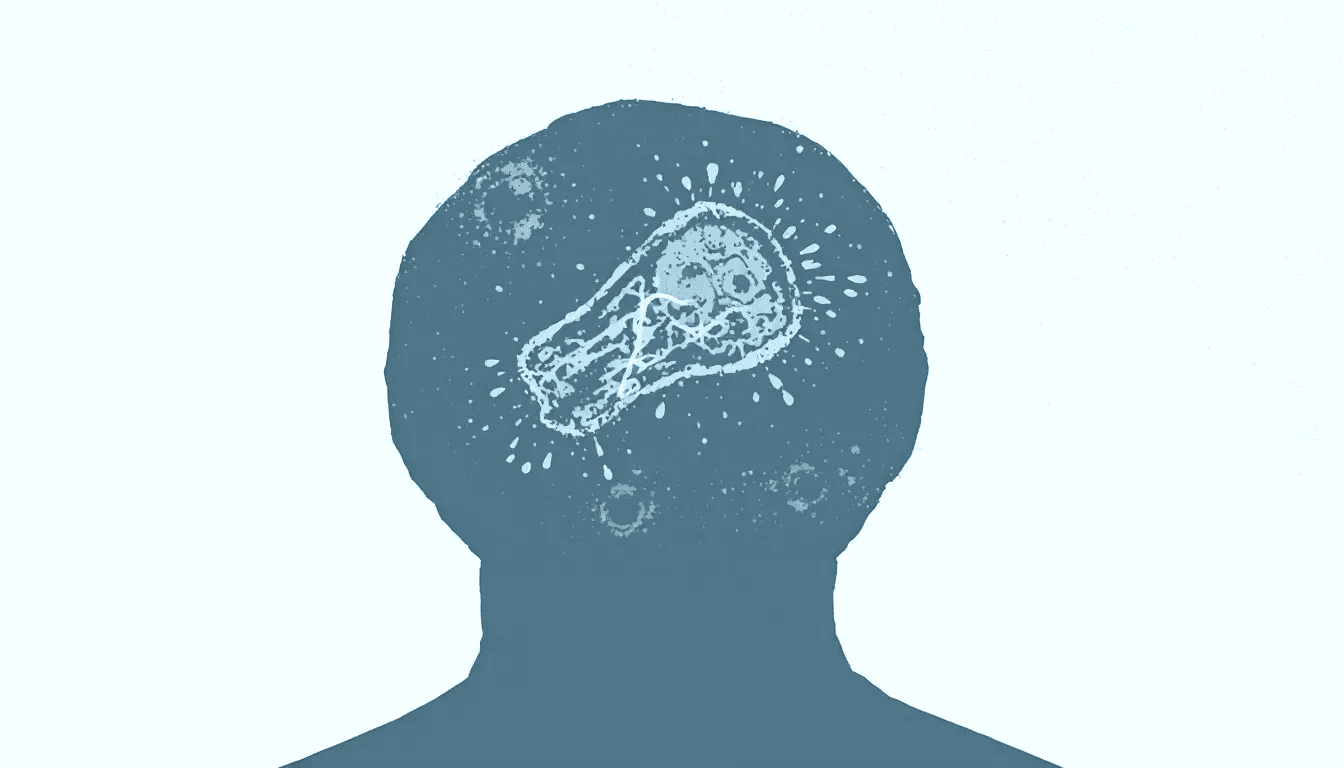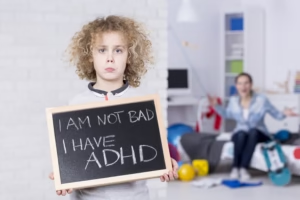Social phobia, also known as social anxiety disorder, involves an intense fear of social situations due to the fear of being judged or humiliated. This condition goes beyond simple shyness and can significantly affect your daily life. In this article, we will discuss the symptoms, causes, and treatment options for social phobia social anxiety. It is important to consult a mental health professional for accurate diagnosis and treatment options.
Key Takeaways
Social anxiety disorder, or social phobia, is a persistent fear of social situations that leads to significant distress and can impact daily life, education, and relationships.
Recognizing the symptoms, which include intense fear of social interactions and physical symptoms such as rapid heart rate and sweating, is crucial for timely intervention and effective diagnosis.
Effective treatment often combines psychotherapy methods like Cognitive Behavioral Therapy (CBT) and Acceptance and Commitment Therapy (ACT) with lifestyle changes and support from groups, focusing on long-term management to prevent relapse.
Defining Social Phobia and Social Anxiety Disorder

Social phobia, also known as social anxiety disorder, is identified by a continuous fear of being exposed to situations where one might be judged or face embarrassment. This serious condition goes beyond typical shyness and can profoundly affect everyday life due to the severe anxiety it causes.
Those who suffer from this type of anxiety disorder struggle with an intense fear of scrutiny from others in various settings. They may either completely avoid engaging in social interactions or experience extreme discomfort during such events, fearful of actions that could lead them to feel ashamed, seen as inadequate, or become the focus point within these scenarios.
The impact of social anxiety disorder extends through many areas: it can disrupt educational pursuits, impede professional advancement, and damage personal relationships. The avoidance behavior associated with this persistent fear often results in isolation, which can worsen the issue at hand. Recognizing and understanding this mental health problem is essential for taking steps towards managing its symptoms effectively.
Recognizing Symptoms of Social Anxiety Disorder

It’s vital to identify the signs of social anxiety disorder early for timely and effective treatment. Social anxiety disorders can be linked to other mental health issues, which may increase the risk of developing the condition.
Emotional manifestations can include:
- A deep-seated fear when interacting with others
- An increased sense of self-awareness
- Reluctance to maintain eye contact
- Challenges in starting conversations
- Significant unease in settings that require social engagement
The physical effects, like blushing, perspiration, shaking, and experiencing an accelerated heart rate, are just as troubling. The concern about these symptoms being visible exacerbates the feeling of anxiety, trapping individuals in a relentless cycle. Imagine sensing your cheeks warm up and hands quiver while fretting over possible judgment from those around you.
It is imperative to separate social anxiety disorder from simple shyness. Unlike shyness, which is more akin to a character trait, social anxiety disorder represents a persistent mental health issue that significantly hampers everyday life activities. This constant overpowering dread during interactions far surpasses common awkwardness and may immobilize someone completely.
People who have this type of anxiety often contend with profound fears related to performance-based scenarios such as public speaking or forging new acquaintanceships. These situational anxieties might result in somatic reactions like nausea or vertigo or even cause disruptions in breathing patterns, which add layers of complexity to their ability for healthy societal engagements.
Causes and Risk Factors
Comprehending the origins and contributing elements of social anxiety disorder is critical for shedding light on its onset and guiding therapeutic interventions. The genetic component is prominent, as a tendency towards anxiety disorders frequently exists within families. Possessing a family history related to social anxiety amplifies the probability that an individual may also be affected by this condition.
Environmental influences are considerable in their impact. Experiences such as being subjected to bullying or public embarrassment during one’s youth can escalate the risk for those who are naturally shy or reserved to develop social anxiety disorder. Environments characterized by stress, parental pressures, or distressing societal interactions serve as potential catalysts for inciting this form of anxiety. After a doctor assesses a patient for other health conditions, a referral to a mental health specialist may be necessary to further evaluate and diagnose social anxiety disorder.
From a neurological perspective, an overly sensitive amygdala responsible for managing our fear reactions could amplify the intense feeling of dread associated with social situations typical of individuals with social anxiety disorder. It’s this interwoven relationship between biological factors and environmental conditions that contributes to shaping susceptibility to developing the disorder.
Diagnosis Criteria for Social Anxiety Disorder

To properly diagnose social anxiety disorder, a detailed evaluation using the criteria from the Diagnostic and Statistical Manual of Mental Disorders (DSM-5) is essential. This ensures that it’s accurately distinguished from other mental health conditions as per guidelines set by the American Psychiatric Association.
For a diagnosis of social anxiety disorder to be made, symptoms must have persisted for at least six months. This differentiates it from transient anxiety tied to specific situations. Such symptoms should also cause significant distress or hinder functioning in key areas like work or personal relationships.
The diagnostic procedure often includes self-report questionnaires designed to evaluate how severe symptoms are and their impact on everyday life. These instruments enable mental health professionals to collect precise data about how often and intensely an individual experiences anxiety, thus providing a more comprehensive understanding of their condition.
Effective Psychotherapy Options

Treating social anxiety disorder typically involves a combination of psychotherapy and medications, such as selective serotonin reuptake inhibitors (SSRIs). Psychological treatments have gained widespread acceptance for their effectiveness, with Cognitive Behavioral Therapy (CBT) and Acceptance and Commitment Therapy (ACT) standing out as key methods in addressing social anxiety. To treat social anxiety disorder effectively, healthcare professionals often recommend a combination of SSRIs, beta-blockers, and therapeutic approaches like CBT and ACT.
As a central form of treatment for this anxiety disorder, CBT aims to transform negative thinking and behavioral patterns. Meanwhile, ACT focuses on promoting mindfulness and the acceptance approach, guiding individuals to act in accordance with their values while managing anxious feelings. Each therapeutic strategy provides distinctive advantages and can be customized to meet the specific requirements of each person dealing with social anxiety disorder.
Acceptance and Commitment Therapy (ACT)
Acceptance and Commitment Therapy (ACT) employs mindfulness techniques alongside goal-setting strategies to alleviate discomfort and anxiety. The method promotes psychological agility by assisting individuals in living with awareness while aligning their actions with personal values. It integrates six fundamental processes: Acceptance, being present, Cognitive Defusion, viewing self from a broader perspective (Self-as-context), identifying one’s Values, and taking committed action.
A vital aspect of ACT is Cognitive Defusion, wherein it trains individuals to recognize their thoughts simply as mental events that don’t require alteration or validation. This diminishes the internal conflict about these thoughts’ veracity and cultivates an attentive yet non-reactive state, which allows for energy to be channeled towards what truly matters – personal values.
Within the context of ACT, exercising self-compassion plays an essential role by aiding people to treat themselves kindly during tough moments, thereby reducing distress linked to social anxiety disorder.
Employed in managing social anxiety disorder, ACT has shown high efficacy levels—sometimes surpassing those seen with conventional CBT approaches. Notable improvements may be evident after just twelve sessions. Individual requirements can extend this timeframe. By focusing on behaviors anchored in value-driven goals, like enhancing workplace interactions instead of dwelling on others’ judgments, ACT enables effective treatment outcomes
Cognitive Behavioral Therapy (CBT)
Cognitive Behavioral Therapy (CBT) is acknowledged as a key therapeutic approach for managing social anxiety disorder. This therapy enables individuals to identify and alter negative thought patterns, which enhances their confidence and diminishes their levels of anxiety. Exposure therapy is an essential element of CBT that involves incrementally confronting feared scenarios to progressively decrease the associated anxiety.
Structured on a weekly basis over several months, CBT sessions are designed to help individuals develop coping skills and become more confident in social situations gradually. The dual focus on cognitive and behavioral strategies makes CBT a holistic treatment option that can lead to substantial enhancements in one’s quality of life.
Alternative Treatments and Lifestyle Changes
Supplementary non-pharmaceutical interventions and modifications to daily habits can serve as a valuable aid in controlling the manifestations of social anxiety disorder. Although certain plant-based treatments, such as kava and valerian root, might be promising for their anxiolytic effects, they are not without potential hazards like hepatic impairment. While passionflower and chamomile have been observed to alleviate some symptoms linked with social anxiety, there is a risk of interaction with other pharmaceuticals.
It’s essential to seek guidance from medical professionals before commencing any herbal supplementation to validate its safety and efficacy. While there may be limited research supporting oral lavender’s benefits in managing anxious feelings, it should not be used by children or pregnant individuals. Embracing a wholesome lifestyle that encompasses adequate sleep duration, consistent physical activity routines, and nutritional balance contributes notably towards mitigating anxiety levels.
Pursuing active engagement in exercises along with implementing techniques aimed at stress reduction stands out as practical natural methods for coping with symptoms associated with anxiety disorders. Frequent physical workouts can enhance one’s overall disposition while simultaneously decreasing feelings of unease. Concurrently, mindfulness tactics alongside controlled breathing exercises offer immediate solace during periods marked by heightened apprehension stemming from social fears.
Clinical Trials and Research
Clinical trials and research are pivotal in enhancing our understanding of social anxiety disorder and developing more effective treatments. Organizations like the National Institute of Mental Health (NIMH) spearhead numerous clinical trials aimed at exploring new therapies, medications, and treatment methodologies for social anxiety disorder. These trials not only contribute to scientific knowledge but also offer individuals with social anxiety disorder access to cutting-edge treatments that might not be available through conventional means.
Researchers are delving into various facets of social anxiety disorder, including its underlying causes, symptoms, and potential treatment options. Some studies focus on the genetic predispositions and environmental factors that may contribute to the development of social anxiety disorder. Others investigate the efficacy of different therapeutic approaches, such as cognitive-behavioral therapy (CBT) and pharmacological treatments.
For those interested in participating in clinical trials, resources like ClinicalTrials.gov provide comprehensive databases of ongoing studies. Additionally, contacting local research institutions and universities can uncover opportunities to contribute to this vital research. Participation in clinical trials not only offers potential personal benefits through access to new treatments but also plays a crucial role in advancing the broader understanding of social anxiety disorder.
Impact on People with Social Anxiety
Social anxiety disorder can profoundly affect an individual’s daily life, relationships, and overall well-being. Those grappling with this anxiety disorder often experience intense feelings of isolation, loneliness, and diminished self-esteem, which can significantly impact their mental health and quality of life.
The disorder’s impact extends to personal relationships, where the fear of being judged or rejected can lead to avoidance of social situations. This avoidance can result in a sense of disconnection and isolation from family and friends, making it challenging to form and maintain meaningful relationships. The constant worry about social interactions can create a barrier to developing close bonds, further exacerbating feelings of loneliness.
In professional and educational settings, social anxiety disorder can be equally debilitating. Individuals may avoid public speaking, presentations, or any situation that requires social interaction, limiting their career advancement and educational opportunities. The fear of negative evaluation can hinder performance and participation, creating a cycle of missed opportunities and unfulfilled potential.
Seeking help from mental health professionals is crucial for those affected by social anxiety disorder. With appropriate treatment and support, individuals can learn to manage their symptoms and improve their overall quality of life. Support from family and friends also plays a vital role in helping individuals navigate the challenges of social anxiety disorder, fostering a supportive environment that encourages growth and recovery.
Coping Strategies for Daily Life

Navigating social anxiety disorder effectively entails the adoption of appropriate coping mechanisms. By setting incremental goals and practicing them step by step, one can gradually increase self-assurance and control over social anxiety. For example, coming up with conversation starters in advance may help alleviate concerns about keeping conversations going in social environments.
Engaging in regular exercise and mastering techniques for stress regulation serve as valuable non-pharmaceutical methods to handle anxiety. Employing grounding practices, such as focusing on deep breathing or tactile sensations, can assist in alleviating immediate feelings of anxiety. Reflecting positively on past interactions can bolster confidence and lessen apprehensions regarding future social events.
Being aware of individual boundaries is essential to allow time-outs during times of intense social engagement. Concentrating on active listening rather than personal discomfort helps shift focus away from anxious thoughts, facilitating stronger interpersonal connections. Steering clear of substances like alcohol is also imperative when preparing for participation in social scenarios to maintain a grip on managing anxiety levels.
Role of Support Groups
Groups that provide support prove beneficial for those dealing with social anxiety by allowing them to engage with peers who share similar struggles. These groups facilitate candid feedback, aid in identifying and correcting skewed beliefs concerning being judged, and furnish techniques to conquer apprehension. Such groups operate both face-to-face and digitally, ensuring a variety of accessible options.
The presence of a supportive companion at social events can offer solace and encouragement. This shared assistance enhances self-assurance, rendering social exchanges less daunting.
As individuals partake in these support circles, the give-and-take aspect ensures members experience empathy and a reduced sense of solitude.
Long-term Management and Relapse Prevention
For individuals experiencing social anxiety disorder in Houston, accessing local resources can be a pivotal step towards effective management and recovery. The city’s diverse healthcare landscape offers numerous options for those seeking treatment and support.
Mental Health Professionals in Houston
Houston is home to a variety of mental health professionals specializing in treating social anxiety disorder. These experts, including psychologists, psychiatrists, and licensed therapists, provide personalized care tailored to individual needs. Seeking help from a mental health professional can facilitate the diagnosis of social anxiety disorder and guide patients through evidence-based treatment options.
Therapy and Support Groups
In Houston, several therapy centers offer Cognitive Behavioral Therapy (CBT) and Acceptance and Commitment Therapy (ACT), both of which are highly effective in treating social anxiety disorder. Additionally, support groups are available, providing a community for individuals to share experiences and coping strategies in a safe environment.
Are you seeking an ADHD therapist in Houston, who has extensive experience in working with people suffering from ADHD symptoms?
Perhaps you’d like to meet with an anxiety treatment counselor? At Acceptance Path we have counselors that specialize in bipolar disorder treatment, PTSD & trauma therapy, and eating disorders treatments.
Clinical Trials and Research Opportunities
Houston’s medical research institutions frequently conduct clinical trials focusing on social anxiety disorder and related treatments. Participating in these trials can provide access to cutting-edge therapies and contribute to the broader understanding of this condition.
Lifestyle and Wellness Programs
For those seeking holistic approaches to manage social anxiety disorder, Houston offers wellness programs that include mindfulness practices, stress reduction techniques, and lifestyle modifications. These programs complement traditional treatments and support long-term management of anxiety symptoms.
By leveraging these resources, individuals in Houston can find comprehensive support to manage social anxiety disorder effectively, improving their quality of life and fostering personal growth.
Summary
Social anxiety disorder is a complex and challenging condition, but understanding its symptoms, causes, and treatments can pave the way to effective management and recovery. From recognizing the signs to seeking appropriate therapy and making lifestyle changes, individuals can take steps to overcome social anxiety and lead fulfilling lives. Remember, seeking help is a sign of strength, and with the right support, it’s possible to manage and even overcome social anxiety.
Frequently Asked Questions
What is Social Anxiety Disorder?
Social Phobia, also known as Social Anxiety Disorder, is characterized by an extreme fear of being negatively evaluated in social settings. This anxiety disorder causes significant distress and hampers one’s ability to function effectively in daily life.
How long must symptoms be present for a diagnosis of Social Anxiety Disorder?
For a diagnosis of Social Anxiety Disorder, symptoms must be present for more than six months.
What types of medications are effective in treating Social Anxiety Disorder?
Selective Serotonin Reuptake Inhibitors (SSRIs), Monoamine Oxidase Inhibitors (MAOIs), and benzodiazepines such as Clonazepam are effective in treating Social Anxiety Disorder.
It is essential to consult a healthcare professional for appropriate treatment options.
What type of psychotherapy is most effective for Social Anxiety Disorder?
Cognitive Behavioral Therapy (CBT) is the most effective psychotherapy for Social Anxiety Disorder. It helps individuals identify and change negative thought patterns and behaviors associated with anxiety.
What is Acceptance and Commitment Therapy (ACT)?
ACT is a form of behavioral therapy designed to increase psychological flexibility. It promotes mindful living that aligns with one’s personal values.
The method advocates for a stronger dedication to behaviors that are congruent with individual values, even in the face of external difficulties.




